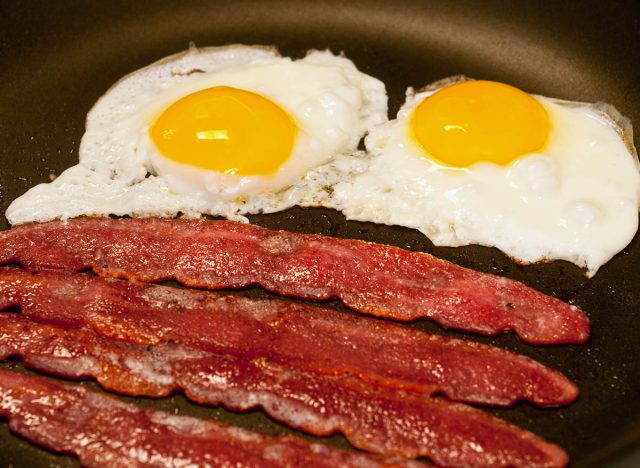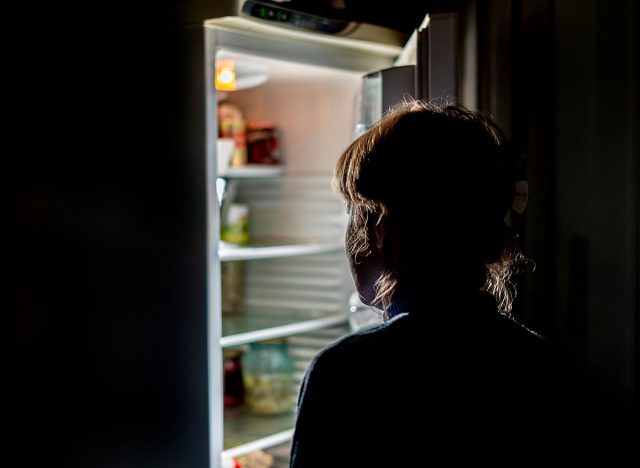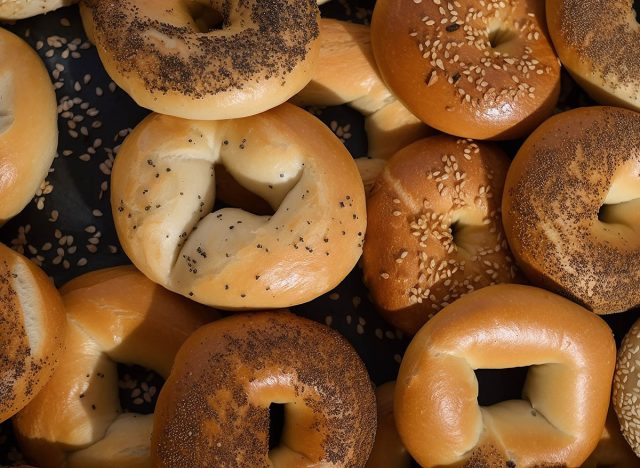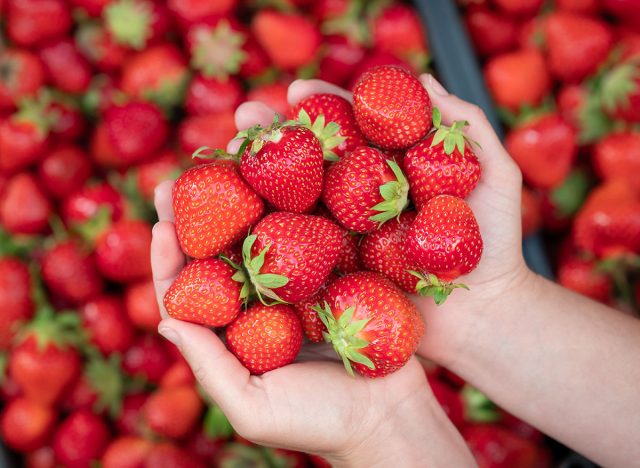6 Metabolism Mistakes Making Women Over 40 Gain Weight

If you're struggling with unexplained weight gain, afternoon energy crashes, and frustrating food cravings, your morning routine might be the culprit. But don't worry – making a few simple changes can help you reclaim your energy and metabolism.
Angela Garcia, Registered Dietitian Nutritionist and Board-Certified Specialist in Obesity at Thrivelab, has spent over 25 years helping patients optimize their nutrition and hormone health. Now based in San Antonio, Texas, she specializes in helping women navigate the complex relationship between nutrition and hormones, particularly during perimenopause and menopause. Read on to discover six-morning mistakes you need to fix – and what to do instead.
How Hormones Hijack Your Morning Metabolism

"During perimenopause and menopause, hormonal changes slow our metabolism, reducing our total calorie needs," explains Angela. "We may have sleep disturbances, fatigue, and carb cravings driving us towards sugary and fatty foods for quick energy. Alterations to our gut microbiome during this time will also impact our metabolism by changing the way we absorb nutrients, process energy, and regulate our blood sugars."
According to the National Institutes of Health, "Consistent meal timing aligns with the body's circadian rhythms, potentially reducing the risk of obesity and improving metabolic health." This makes your morning routine particularly crucial for metabolic health.
Mistake: Skipping Your Morning Meal

"Good morning habits are crucial for setting up our day successfully in terms of meeting our nutritional needs for protein, hydration, and providing energy for the day ahead," says Angela. "I often see patients miss breakfast as they get full on their cup of coffee, so their first meal of the day may be lunch. However, this can work against the metabolism, especially if weight loss is your goal. Eating too little will cause the metabolism to slow and the body to hold on to excess weight."
Solution: Power Up with Early Protein

The Mayo Clinic reports that "consuming at least 30 grams of protein at breakfast may enhance feelings of fullness and aid in weight management." This is because "protein decreases the hunger hormone ghrelin and increases hormones like peptide YY, GLP-1, and cholecystokinin, which promote feelings of fullness and satisfaction."
Mistake: Playing Nutrition Catch-Up All Day

"One of the most common morning routine mistakes is missing breakfast and not getting adequate hydration!" Angela warns. "This usually means you must catch up at some point later in the day, and for many people, this means snacking after dinner. A protein-rich breakfast with complex carbohydrates gives you more control over your appetite throughout the day and prevents an afternoon energy slump which can worsen symptoms of irritability and mood swings."
RELATED: This Weight Loss Coach Reveals 5 Unexpected Tricks That Actually Work
Mistake: Late-Night Snacking Habits

Research from the National Institutes of Health confirms that "eating during inactive periods, such as late at night, can disrupt the body's internal clock, leading to weight gain and metabolic issues."
Mistake: Loading Up on Morning Carbs

Angela explains the science behind morning carb cravings: "Hormone-related weight gain is generally driven by insulin resistance. This is where the insulin produced by our pancreas becomes less effective at lowering blood sugars. Insulin resistance is responsible for belly fat, carb cravings, brain fog and fatigue. We tend to be more insulin-resistant first thing in the morning. So, you don't want to add to this with a starch-heavy breakfast like cereal and toast. This is an ideal time to fuel up with protein and 1-2 servings of complex carbohydrates (fruit and wholegrains) instead."
Solution: Balance Your Breakfast Plate

The Mayo Clinic recommends "a balanced diet for weight loss typically includes 40-50% carbohydrates, 25-35% fat, and 20-30% protein." Harvard Health adds that "high-fiber foods like fruits, vegetables, whole grains, and legumes can help control hunger and prevent overeating."
Mistake: High-Impact Morning Workouts

"High-impact exercise can work against our hormones during pre and post-menopause if there is some adrenal dysfunction," Angela cautions. "Our adrenal glands are responsible for producing hormones such as cortisol and DHEA that are essential for maintaining our internal equilibrium. However, with unrelenting life stressors, elevated levels of cortisol and declining levels of DHEA are observed. This shows up as anxiety attacks, mood swings, and depression. High-impact exercise will stress our system further, so opting for lower-impact exercise such as walking and/or strength training in the morning is the most beneficial."
RELATED: Dance Trainer Reveals 6 Ballet Secrets for a Lean, Toned Body
Solution: Time Your Meals Right

Timing is crucial for metabolic health, as Angela explains: "It is best to eat breakfast within the first couple of hours of waking for the most benefit in terms of energy and metabolism. If you plan to exercise, then refuel within one hour of finishing, when your muscles are most receptive. If you wish to practice fasting, then consider time-restricted feeding. This is a feeding pattern based around circadian rhythms and usually involves an eating window between 6 am and 6 pm for the most benefit. Research is ongoing, but participants in one study reported improved sleep and increased alertness during the day."
Solution: Plan Your Way to Success

The National Institute of Diabetes and Digestive and Kidney Diseases notes that "proper meal spacing can influence metabolism and energy expenditure, potentially aiding in weight management." Additionally, the Mayo Clinic finds that "meal planning is associated with better dietary quality, variety, and adherence to nutritional guidelines, contributing to weight loss success."
Solution: Make Hydration a Priority

WebMD underlines that "staying hydrated is important for weight loss. Drinking 8-10 cups of water daily not only supports metabolism but can also help reduce hunger by promoting a feeling of fullness. This is especially important if you're increasing your protein intake, as hydration helps with protein metabolism."
RELATED: 8 Tips to Make Losing Weight Feel Effortless, From Proven Experts
Solution: Make Hydration a Priority

The National Weight Control Registry reports that "about 20% of people who lose at least 10% of their body weight maintain it for at least a year. Participants who successfully maintain weight loss report engaging in regular physical activity, self-monitoring their weight and diet, and having consistent eating patterns, including breakfast." And if you enjoyed this article, take advantage of these 15 Quick Ways to Lose Body Fat Percentage in a Week.




